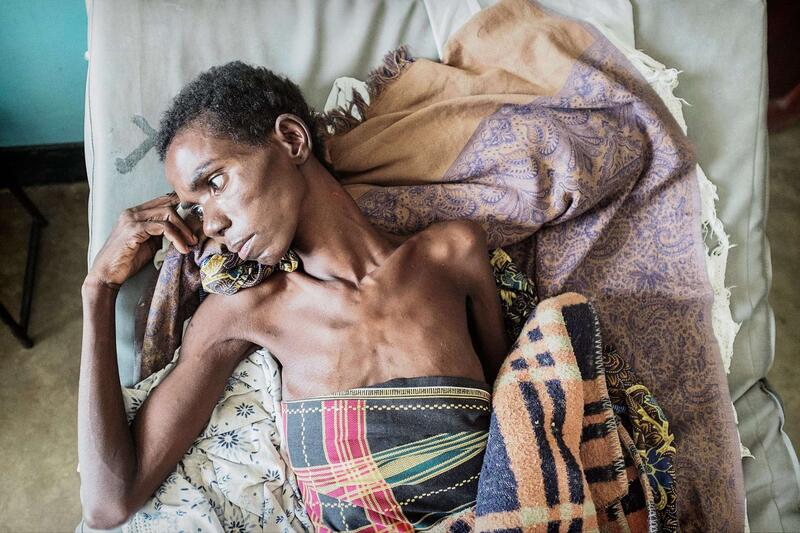An unacceptably high number of people are still dying of AIDS in hospitals in Kenya, Malawi and Democratic Republic of Congo at a time when life-saving antiretrovirals are more widely available than ever.
The face of AIDS is changing however, with more than 50% of people having already been on antiretrovirals. Many show signs of treatment failure or fatigue. MSF has called for greater attention to preventing and treating the changing face of AIDS.
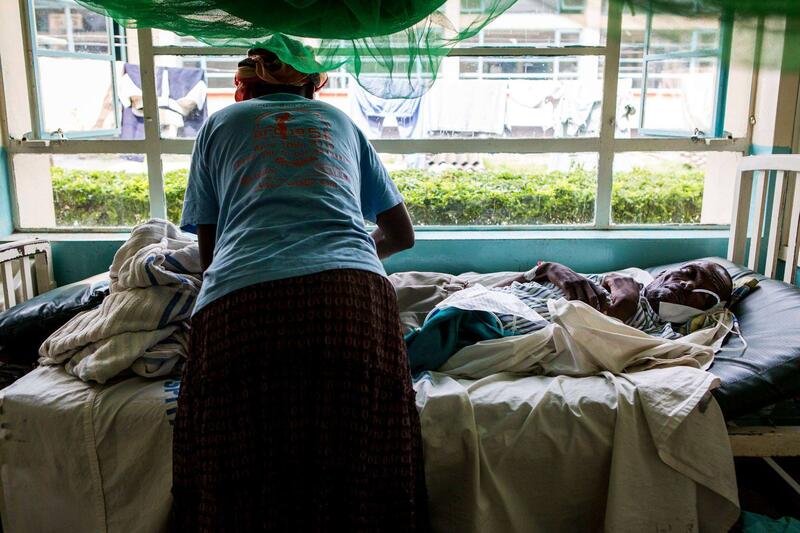
Homa Bay, Kenya: Moses, 46 years, has AIDS and cerebral palsy and requires nasogastric nutrition support as he cannot eat. He has been put on second line antiretrovirals and is being supported by his wife in Homa Bay hospital.
Each AIDS patient represents a tangled web of individual, community, cost and health system weaknesses that have prevented or interrupted effective lifelong HIV treatment.
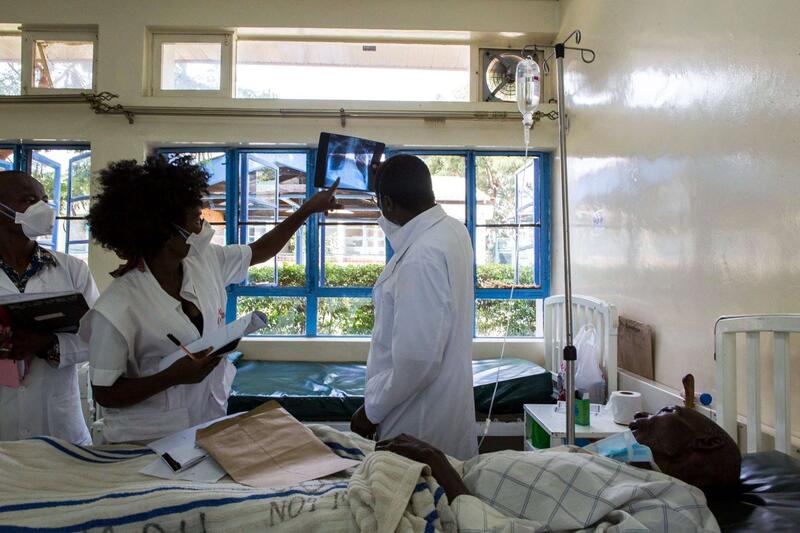
Homa Bay, Kenya: Medical staff in the tuberculosis (TB) ward in MSF-supported Homa Bay hospital, where AIDS accounts for 50% of all admissions.
TB remains the leading cause of death among AIDS patients, followed by cryptococcal meningitis and toxoplasmosis, all difficult to treat without effective, accessible drugs and trained medical car
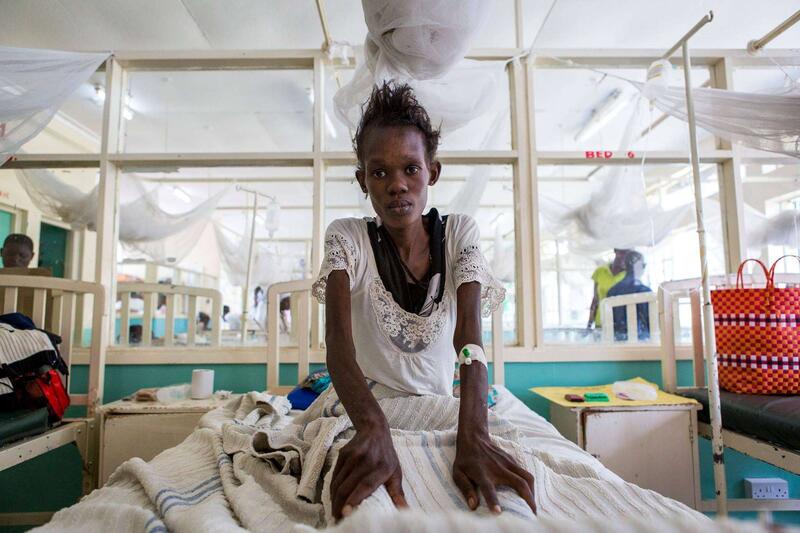
Homa Bay, Kenya: Winnie, 25 years, tested HIV positive in 2015 and prescribed antiretrovirals. For two years, she was referred to numerous health facilities which made a proper diagnosis and treatment difficult. She was recently admitted for severe vomiting and diarrhoea. She was married but now lives with her mother.
Studies show that 25% of people in HIV care will interrupt their treatment at some point, for some reason, for a few days to several months.
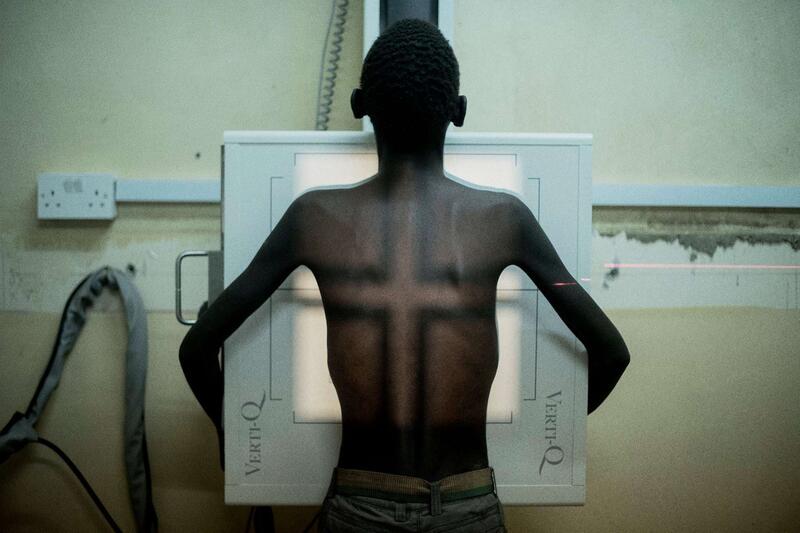
Nsanje, Malawi: Simbazako, 19 years, undergoes radiography for tuberculosis in Nsanje district hospital, Malawi. He says:
“I feel too much pain in my ribs. I take my ARVs without skipping even a day but my health is not improving as I had expected.”
MSF is working with medical teams in Nsanje district hospital to improve diagnosis and clinical care of AIDS, including imaging, laboratory and pharmacy support.
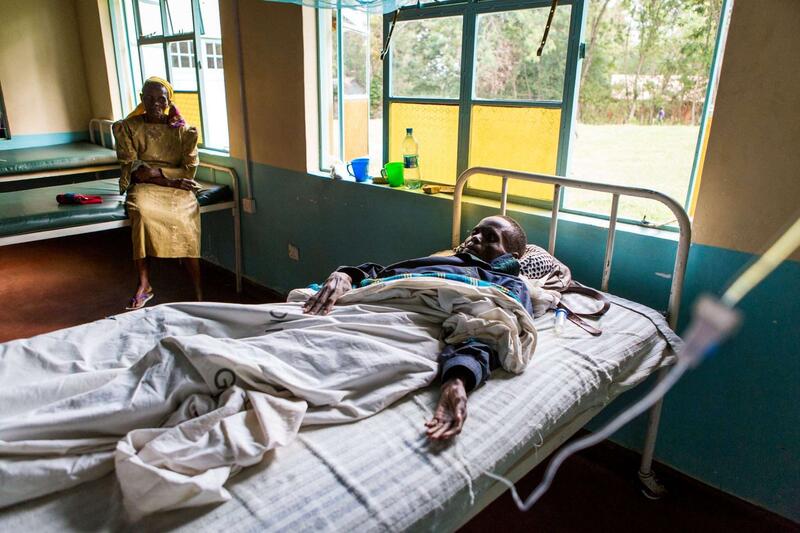
Homa Bay, Kenya: John, 40 years, was diagnosed with HIV in 2009 and started taking antiretrovirals immediately. He has been having diarrhoea for three weeks and lost a lot of weight before coming to Homa Bay hospital.
MSF has called for the urgent implementation of new WHO guidelines to treated AIDS in low-resource settings with additional measures to address potential drug resistance and treatment failure.
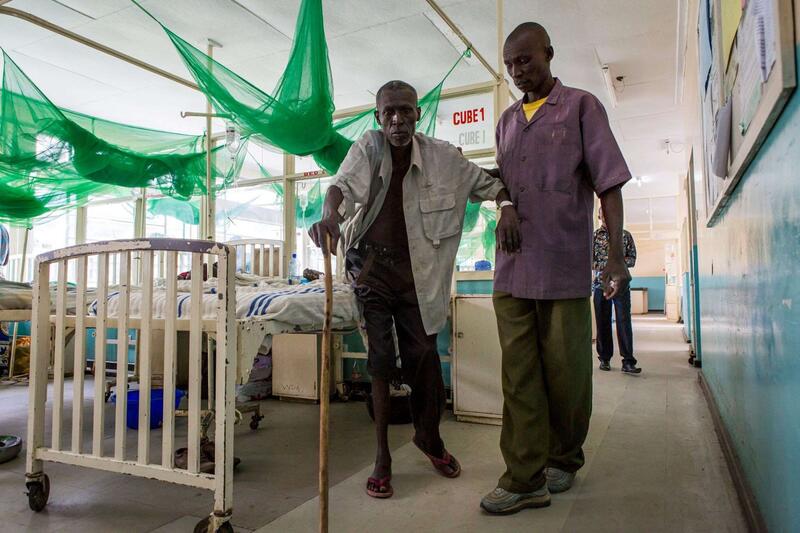
Homa Bay, Kenya: John, 56 years, was diagnosed with HIV in 2015 and has been taking antiretrovirals ever since.
He was admitted in Homa Bay hospital in July 2017 with back and chest pain, and needs assistance for most tasks.
Around 65% of AIDS admissions to the hospital have already been on antiretrovirals before, with 50% showing some form of treatment failure.
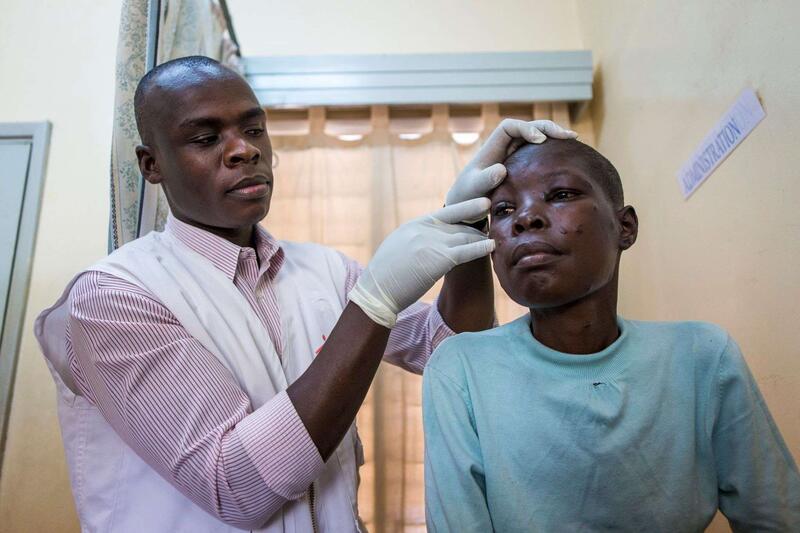
Homa Bay, Kenya: Zipporah, 33 years, was tested for HIV in 2016 but started taking antiretrovirals in February 2017 because she was afraid of the treatment. She has Kaposi Sarcoma, a form of cancer which occurs in late stages of HIV infection and will start chemotherapy soon.
In Homa Bay hospital, MSF supports the Kenyan Ministry of Health in providing comprehensive HIV services, including specialized hospital care for AIDS.
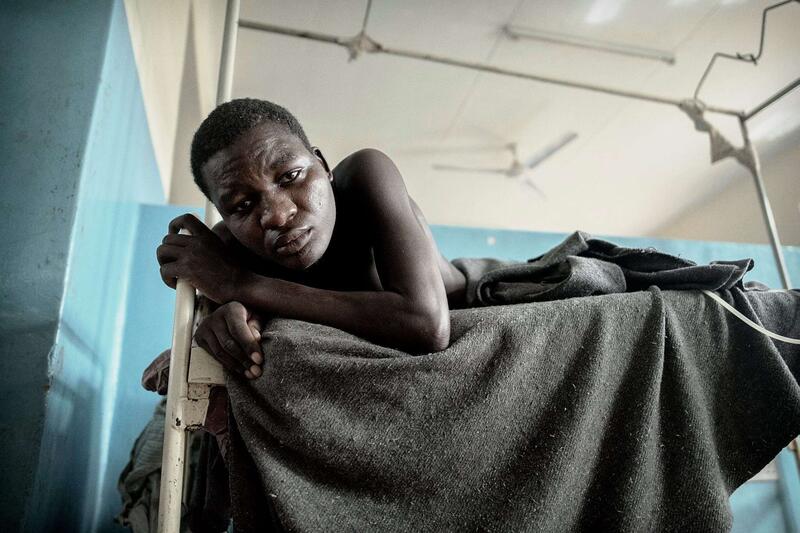
Nsanje, Malawi: Misheck, 29 years, from Mozambique come to Malawi for work. After one month, he had a malaria attack. During his stay at Nsanje district hospital, he was diagnosed HIV positive with severe immune failure.
“I am feeling a bit better but I still cannot move. When I get better, I plan to stay in Malawi because where I come from, stigma is very high towards people who are HIV positive like me. Here in Malawi, people support each other.”
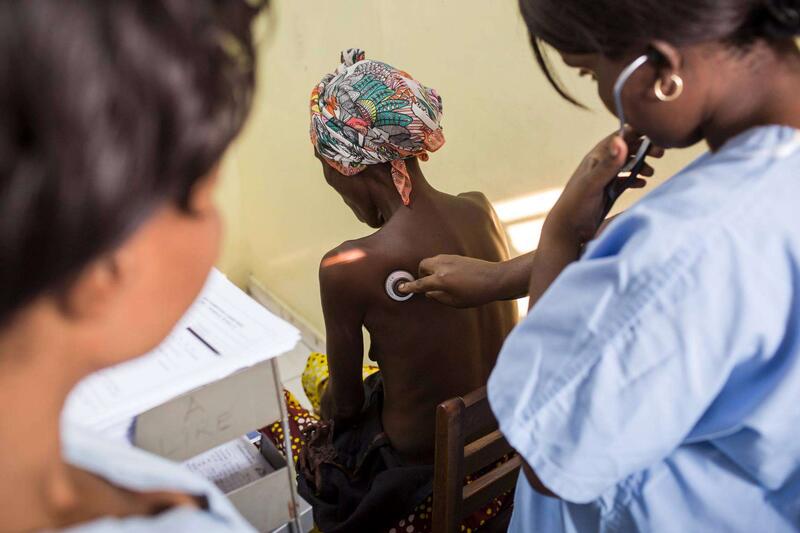
Kinshasa, Democratic Republic of Congo (DRC): An MSF doctor osculates a patient’s lungs to check for abnormalities in MSF’s HIV unit, which provides the only free hospital care for AIDS in the country. In DRC, HIV affects under 2% of the population and is highly stigmatized. People living with HIV also face frequent stock outs of drugs and high costs of tests and treatment.
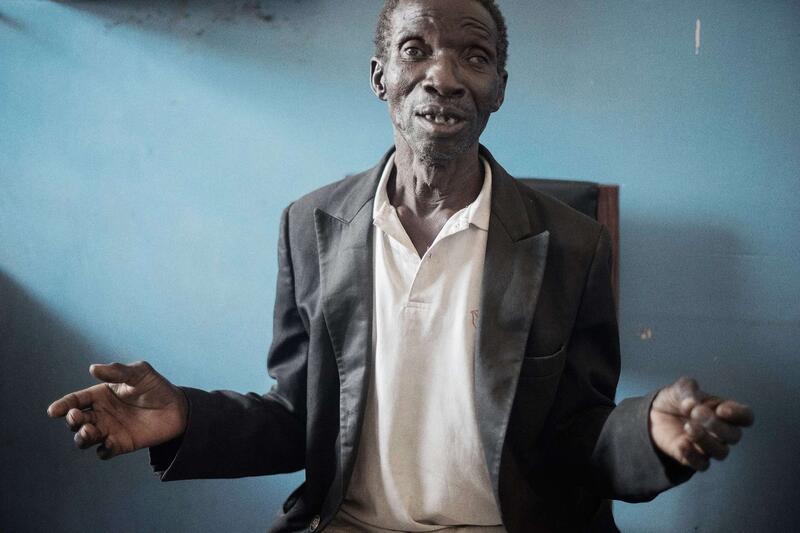
Nsanje, Malawi: Seleman, 62 years, comes from a remote village and is clinically unwell.
“I went for an HIV test at a health centre because I frequently fall sick. They found me with HIV. But I don’t believe the results are true. So I came to the hospital, I think they will tell me the truth.”
A second test confirmed that Seleman is HIV positive but he is still not convinced by the results.

Kinshasa, DRC: A patient* admitted to MSF’s AIDS unit who died of tuberculosis days after this photo was taken.
People arrive at the centre with such severe immune failure that 36% don’t survive the first 48 hours of treatment. Hospital care for these cases requires the speed and urgency of a trauma case.
*consent to use this picture was provided by the family.
